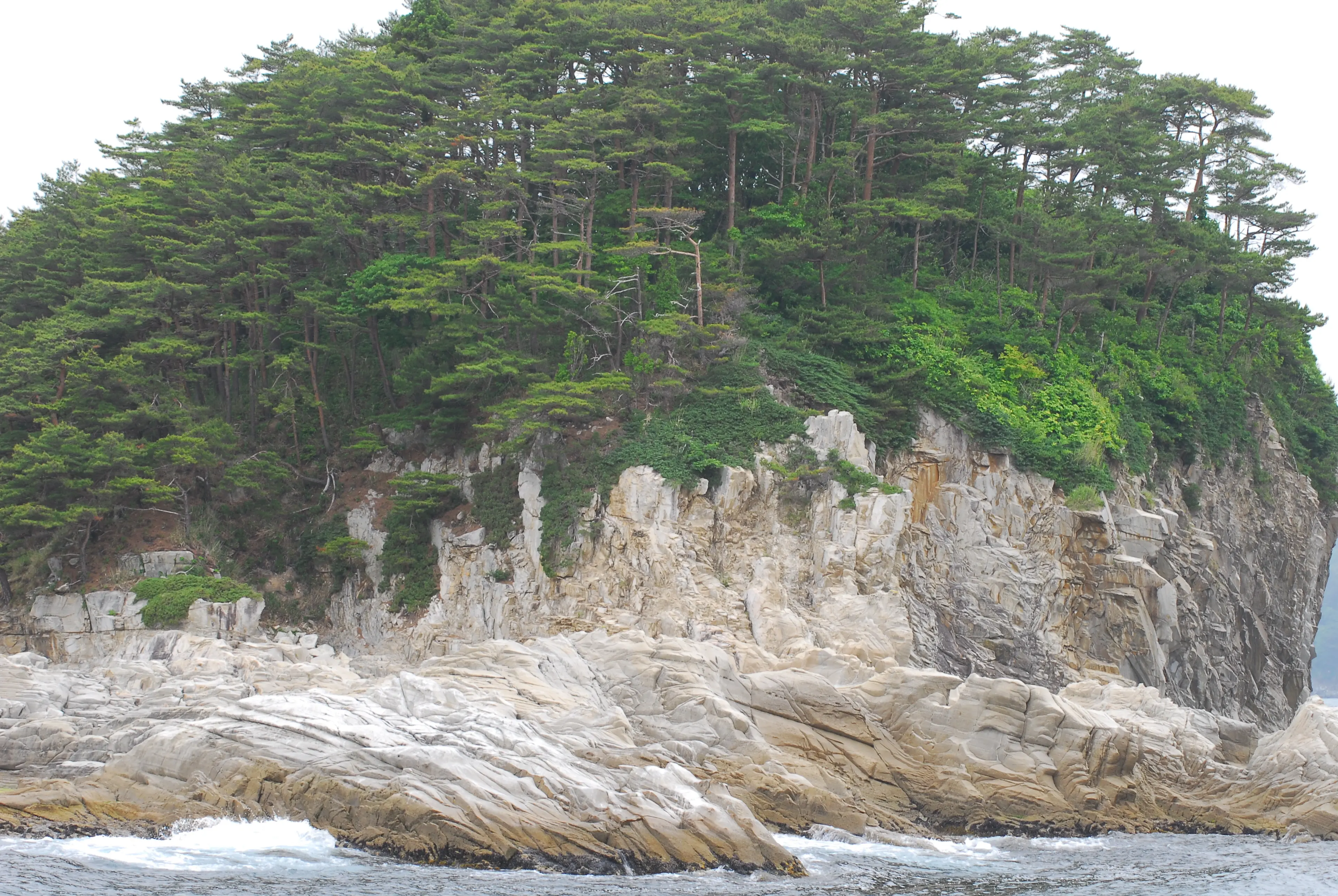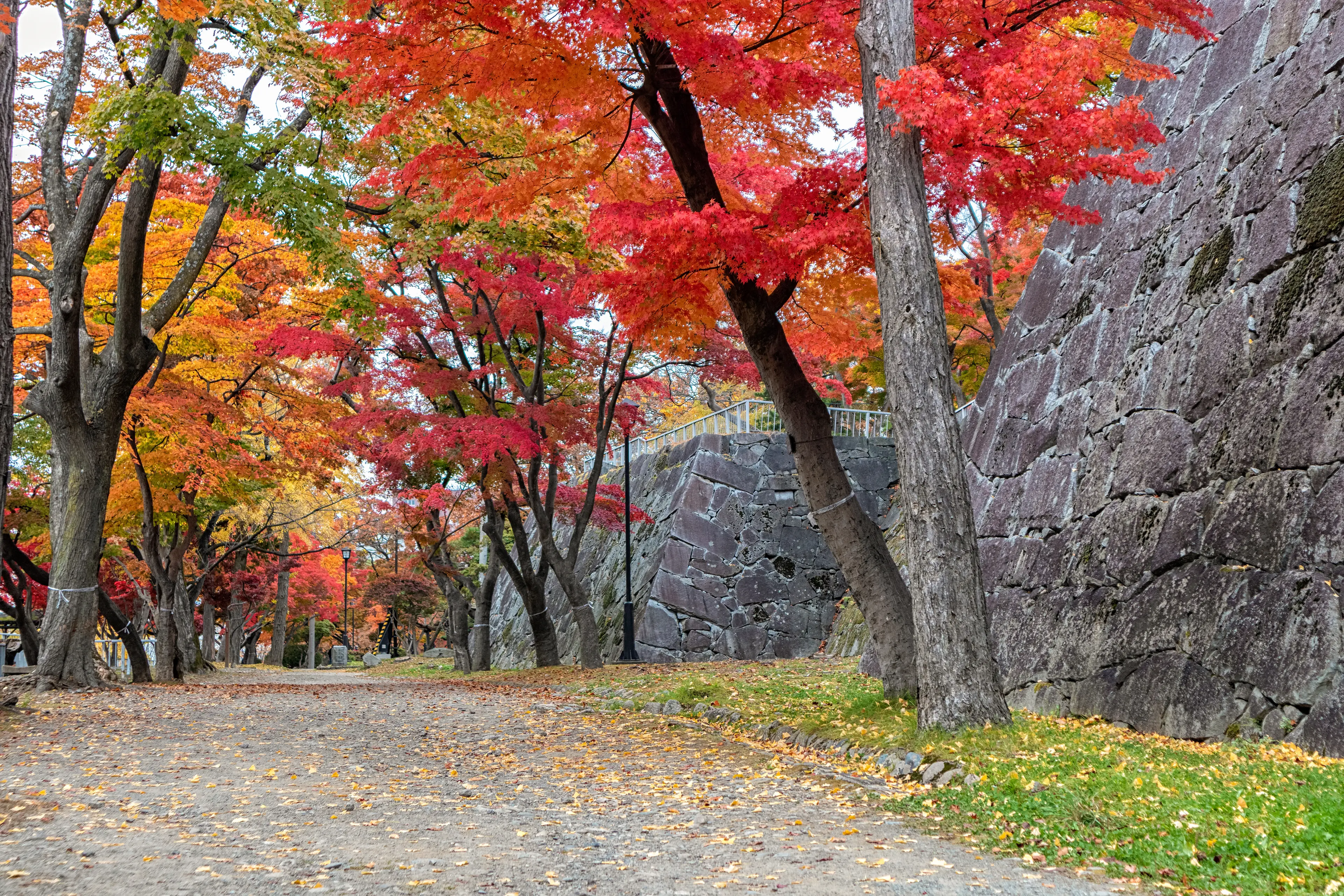5-Day Adventurous Solo Exploration of Morioka, Japan
Morioka, Japan
5 days

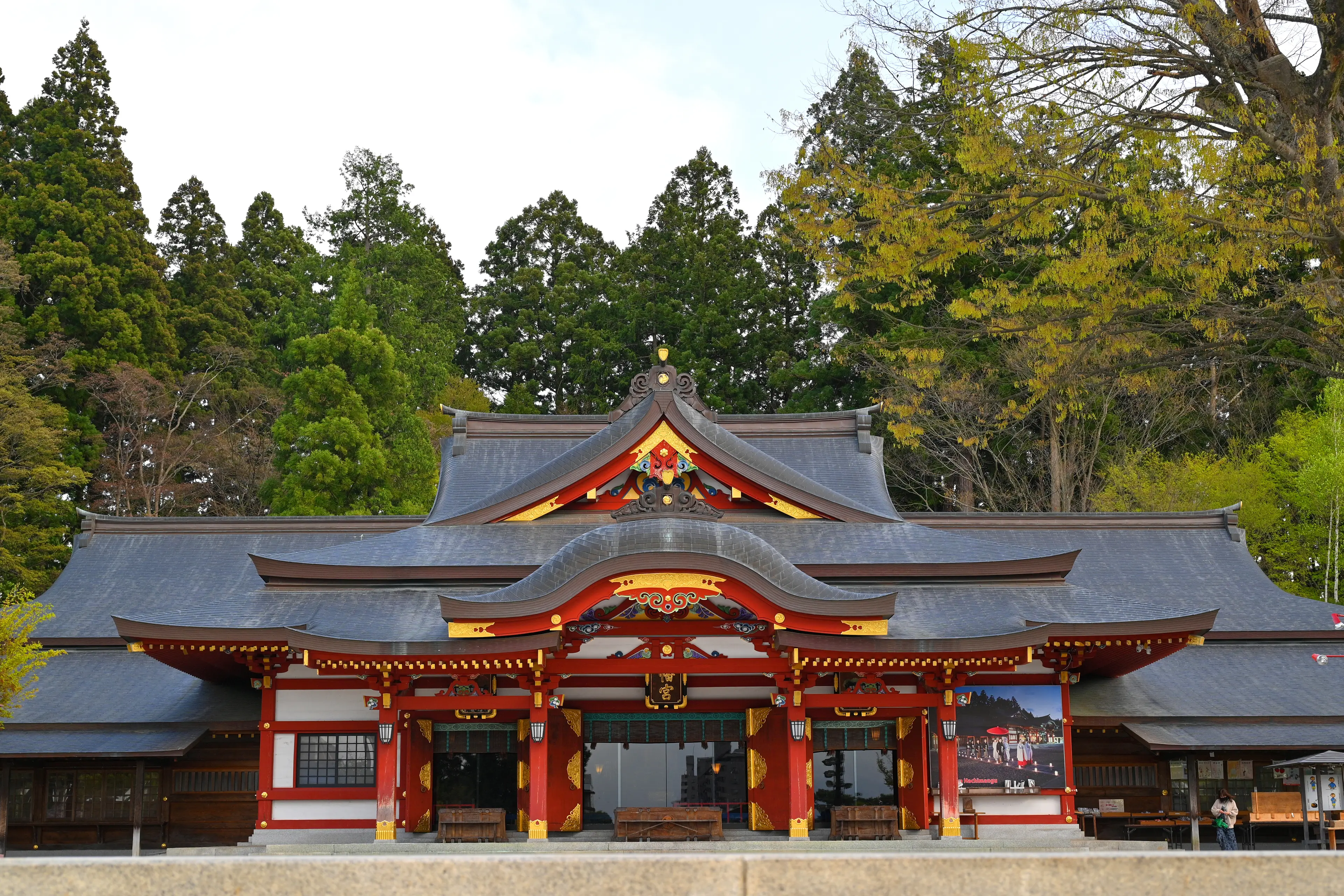
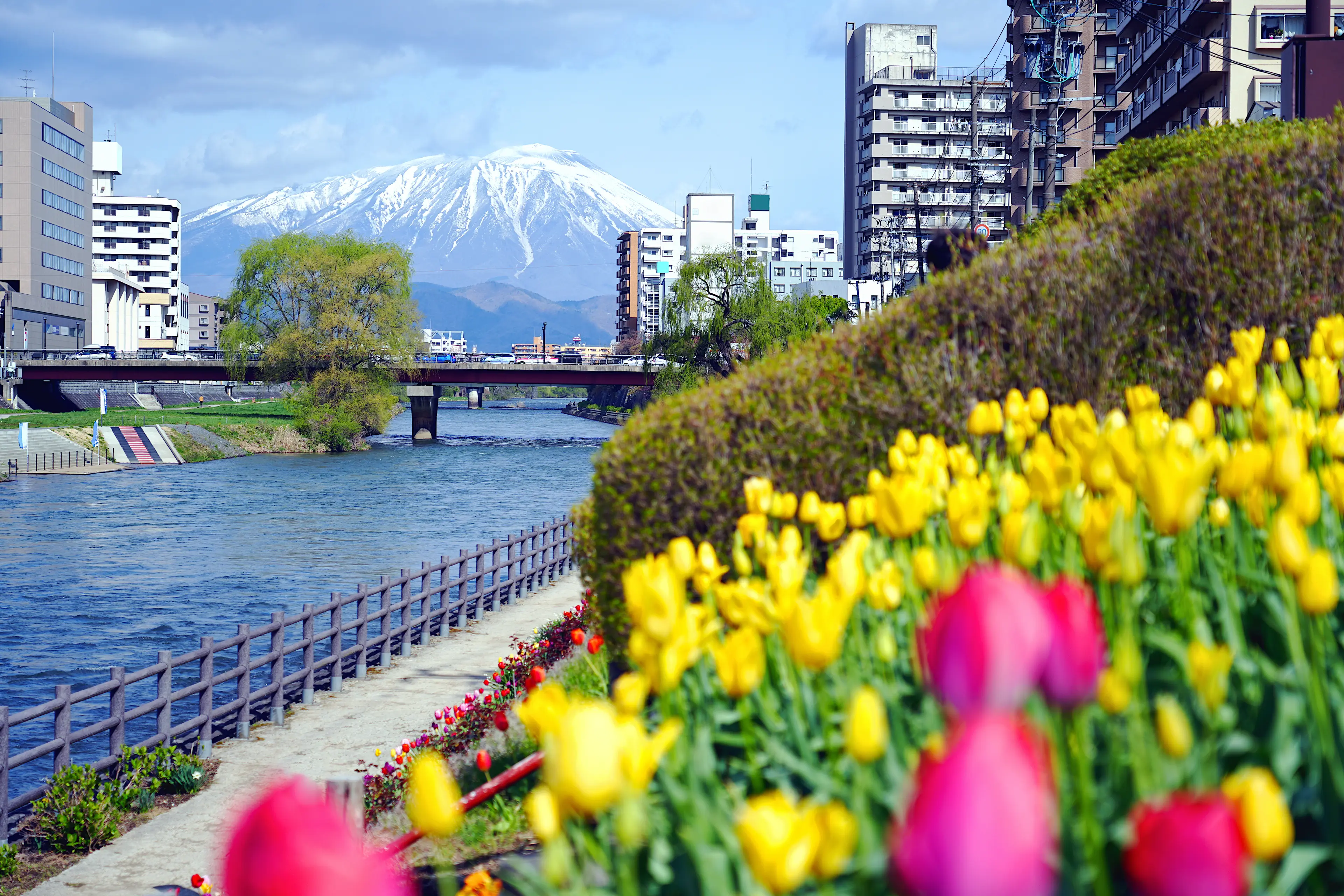

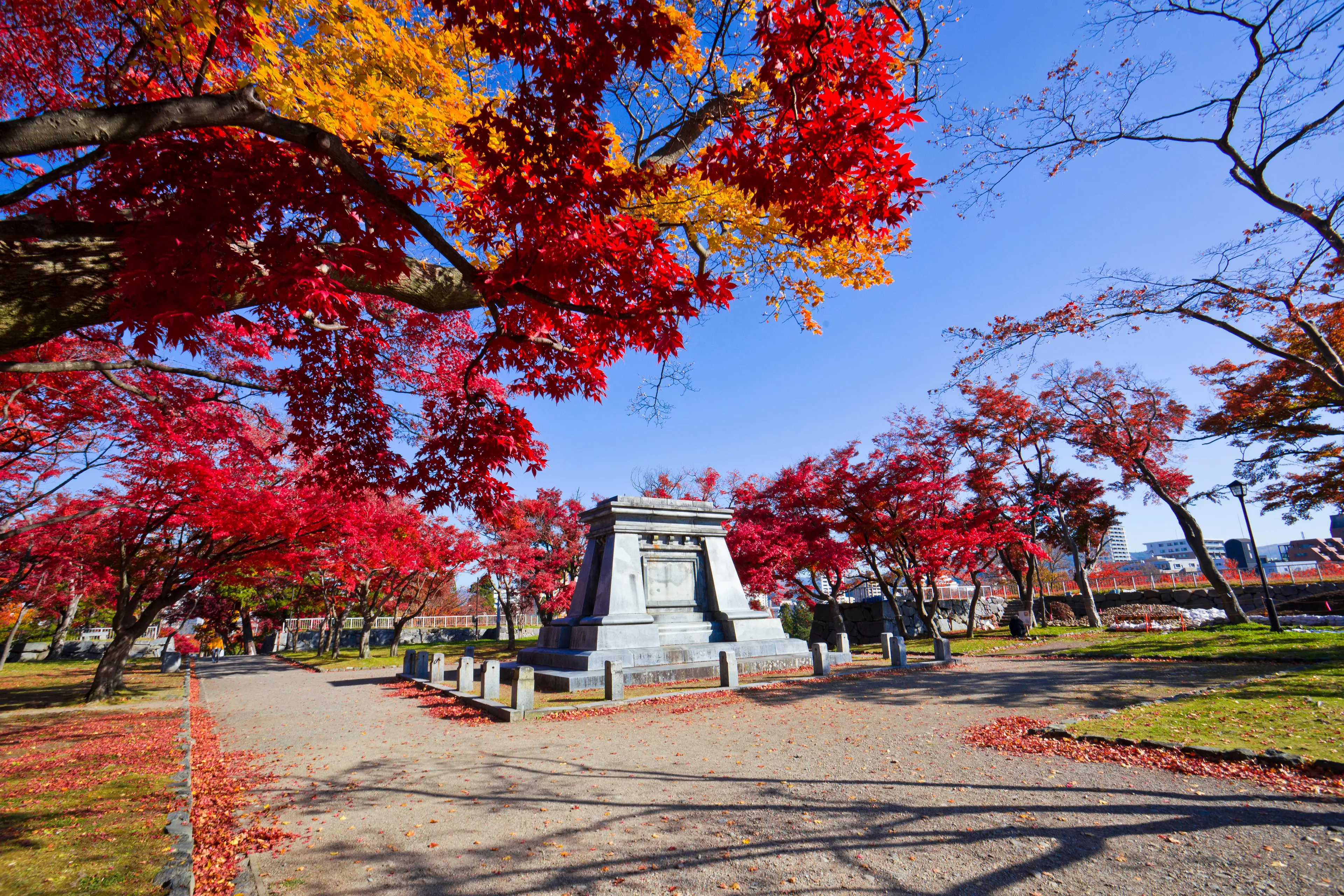
About Morioka, Japan
Experience the charm of Morioka, Japan, a city rich in history, culture, and natural beauty. Nestled in the northern Tohoku region, Morioka offers a blend of traditional Japanese architecture, vibrant festivals, and delectable local cuisine. Visit the Morioka Castle ruins for a glimpse into the city's samurai past or explore the picturesque Rock-Splitting Cherry Tree, a symbol of resilience. Indulge in the city's culinary delights, including the famous 'Wanko Soba' noodles. Don't miss the Sansa Odori Festival, one of Japan's largest dance festivals. Surrounded by mountains, Morioka is also a gateway to outdoor adventures, with skiing, hiking, and hot springs nearby. Experience the warmth of its people and the tranquility of its landscapes in Morioka, a hidden gem of Japan.
5-Day Itinerary
Day 2
Hiking Adventure on Mount Iwate
Morning
Start your day with a hike up Mount Iwate, a beautiful stratovolcano that offers stunning views of the surrounding area. The trail is moderately challenging, making it a great adventure for outdoor enthusiasts.
Lunch
Enjoy a packed lunch at the summit of Mount Iwate. Take in the breathtaking views as you eat.
Afternoon
Descend Mount Iwate and spend the afternoon exploring the surrounding area. Visit a local tea house for a traditional Japanese tea ceremony.
Dinner
Have dinner at a local restaurant in Morioka. Try some of the region's specialties, such as Wanko Soba or Jaja noodles.
Evening
Spend the evening exploring Morioka's nightlife. Visit a local bar or club and enjoy the vibrant atmosphere.
Day 3
Cultural Immersion at Morioka History and Culture Museum and Hoon-ji Temple
Morning
Start your day with a visit to the Morioka History and Culture Museum. Learn about the region's rich history and cultural heritage.
Lunch
Enjoy a traditional Japanese lunch at a local restaurant. Try some of the region's specialties, such as Wanko Soba or Jaja noodles.
Afternoon
Spend the afternoon exploring the Hoon-ji Temple, a beautiful Buddhist temple that is over 600 years old. Take in the stunning architecture and serene atmosphere.
Dinner
Have dinner at a local Izakaya, a type of informal Japanese pub. Sample a variety of small dishes, including sashimi, yakitori, and tempura.
Evening
End your day with a relaxing soak in one of Morioka's many hot springs. These natural baths are the perfect way to unwind after a day of exploration.
Day 4
Crafts and Nature at Morioka Handi-Works Square and Ishiwarizakura
Morning
Start your day with a visit to the Morioka Handi-Works Square, where you can learn about traditional Japanese crafts and even try your hand at making some.
Lunch
Enjoy a traditional Japanese lunch at a local restaurant. Try some of the region's specialties, such as Wanko Soba or Jaja noodles.
Afternoon
Spend the afternoon exploring the Ishiwarizakura, a famous rock-splitting cherry tree that is over 400 years old. This natural wonder is a must-see for any visitor to Morioka.
Dinner
Have dinner at a local restaurant in Morioka. Try some of the region's specialties, such as Wanko Soba or Jaja noodles.
Evening
Spend the evening exploring Morioka's nightlife. Visit a local bar or club and enjoy the vibrant atmosphere.
Day 5
Wildlife and Shopping at Morioka Zoological Park and City Center
Morning
Start your last day in Morioka with a visit to the Morioka Zoological Park. Enjoy seeing a variety of animals and learn about their habitats.
Lunch
Enjoy a traditional Japanese lunch at a local restaurant. Try some of the region's specialties, such as Wanko Soba or Jaja noodles.
Afternoon
Spend your last afternoon in Morioka exploring the city center. Visit local shops and boutiques for some last-minute souvenir shopping.
Dinner
Have your last dinner in Morioka at a local Izakaya, a type of informal Japanese pub. Sample a variety of small dishes, including sashimi, yakitori, and tempura.
Evening
End your adventure in Morioka with a relaxing soak in one of the city's many hot springs. These natural baths are the perfect way to unwind before your journey home.
Attractions in Itinerary (8)

1Iwate Park
A beautiful park located in the heart of Morioka, known for its lush greenery and serene environment.

2Morioka Castle Ruins
Morioka Castle Ruins, also known as Iwate Park, is a historical site where the Morioka Castle once stood. It offers beautiful cherry blossom views in spring and is a popular spot for locals and tourists alike.

3Mount Iwate
Mount Iwate is a stratovolcano located in the Iwate Prefecture. It's one of Japan's 100 Famous Mountains and a popular spot for hiking.

4Morioka History and Culture Museum
A museum that showcases the history and culture of Morioka and Iwate Prefecture.

5Hoon-ji Temple
Hoon-ji Temple is a historic Buddhist temple known for its beautiful architecture and serene atmosphere.

6Morioka Handi-Works Square
A place where visitors can experience traditional crafts and purchase handmade items unique to Morioka.

7Ishiwarizakura
Ishiwarizakura, also known as the Rock-Splitting Cherry Tree, is a famous cherry tree that grows out of a granite boulder. It's over 360 years old and a symbol of perseverance and resilience.

8Morioka Zoological Park
Morioka Zoological Park is a popular attraction for families. It houses a variety of animals and offers educational programs about wildlife conservation.
Local Food and Drinks (11)

Morioka Reimen
A popular cold noodle dish in Morioka, made with chewy, thick noodles, served in a cold, flavorful broth with slices of beef, kimchi, and a slice of watermelon.

Morioka Jaja-men
A local version of Chinese zhajiangmian, featuring thick udon noodles topped with a miso-based meat sauce, cucumber, and green onions.

Wanko Soba
A unique eating style in Morioka where small bowls of soba noodles are continuously served until the diner signals they are full.

Iwate Beef
A local specialty of Iwate prefecture, known for its high-quality, tender, and flavorful beef.

Morioka Curry Udon
A local dish of Morioka, featuring udon noodles served in a rich, spicy curry broth.

Nambu Senbei
A traditional snack from the Nambu region, these are crispy, thin crackers often flavored with soy sauce or sweet syrup.
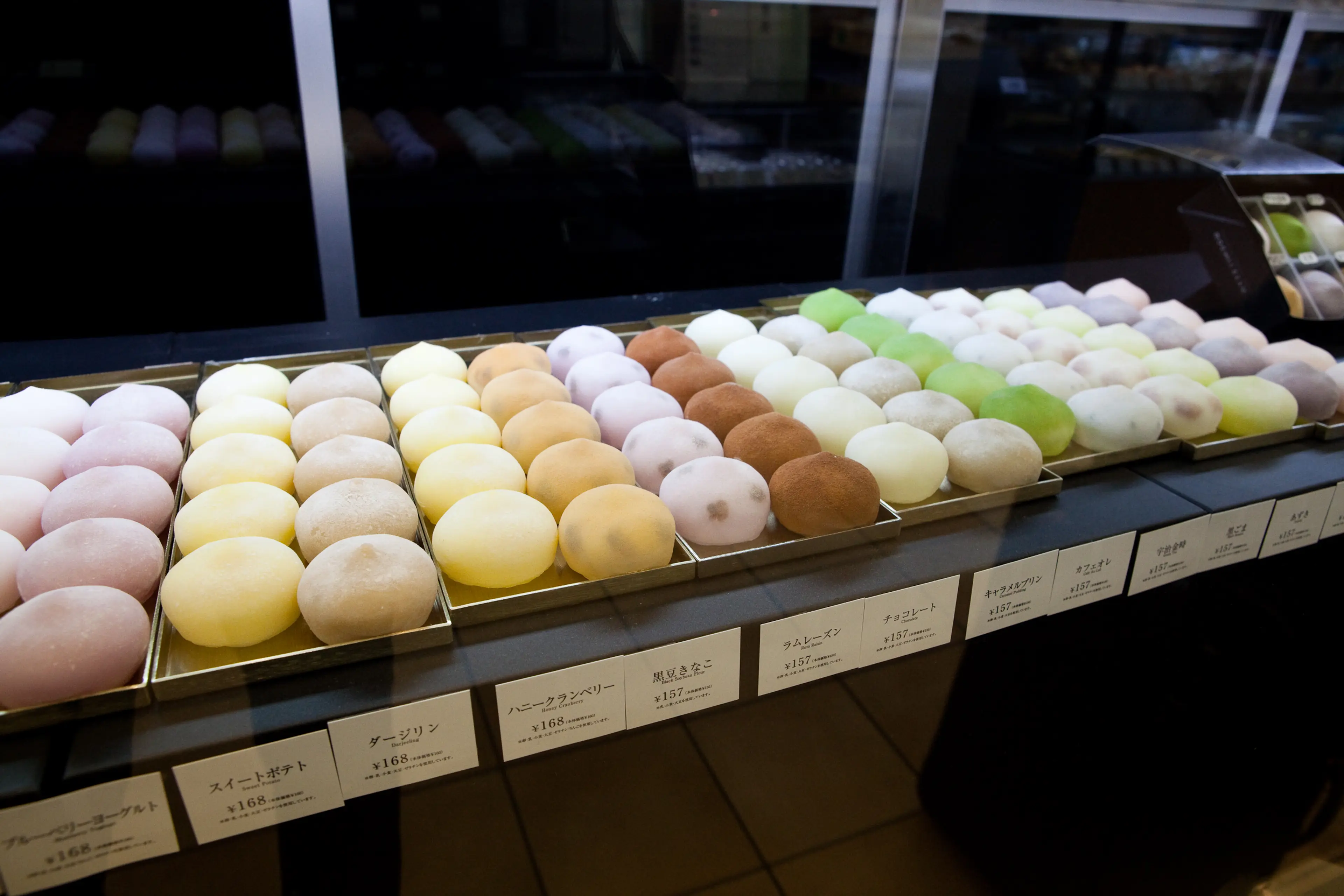
Mochi
A traditional Japanese sweet made from glutinous rice, often enjoyed in Morioka during celebrations and festivals.
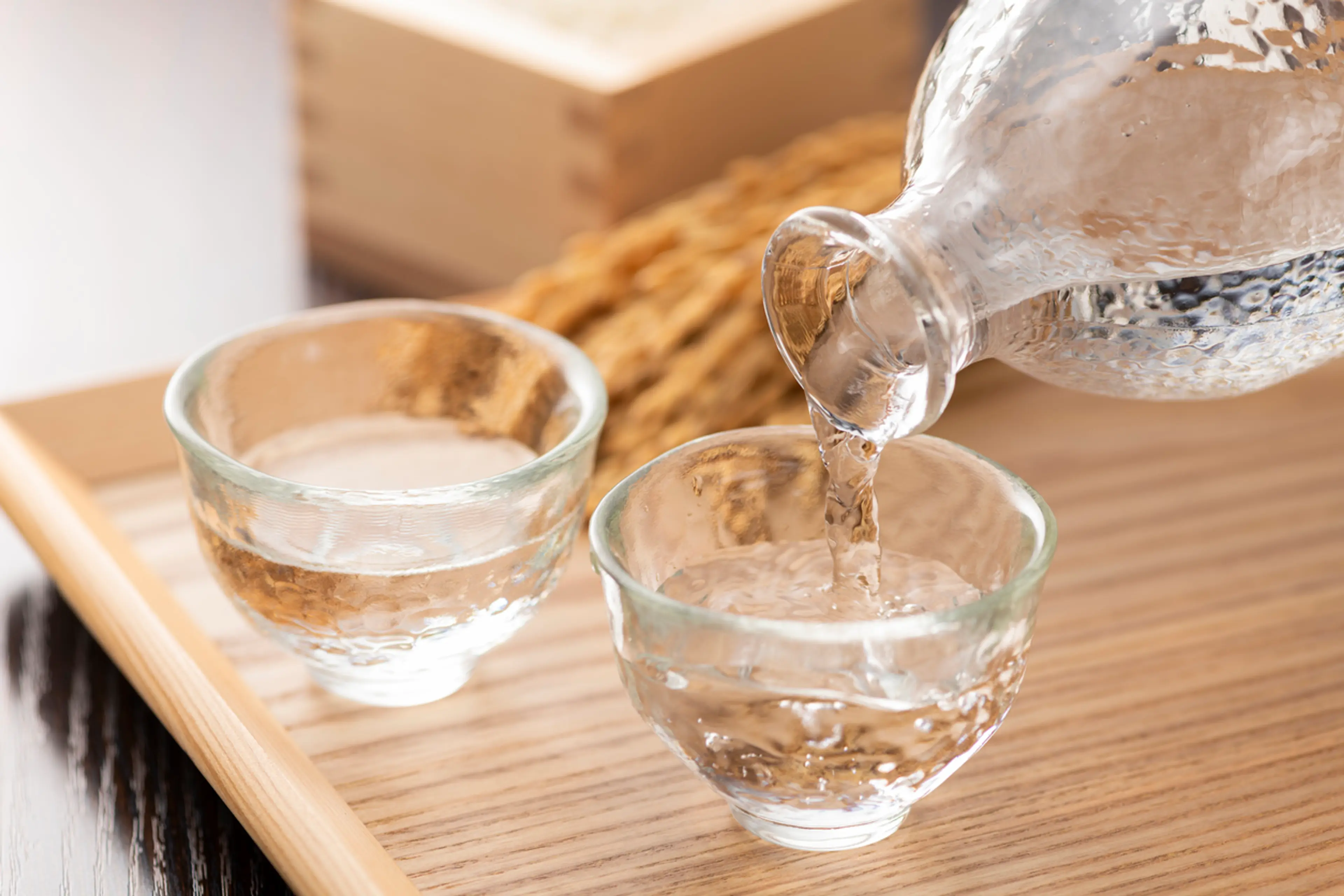
Iwate Sake
A traditional Japanese rice wine produced in Iwate prefecture, known for its clean, crisp taste.
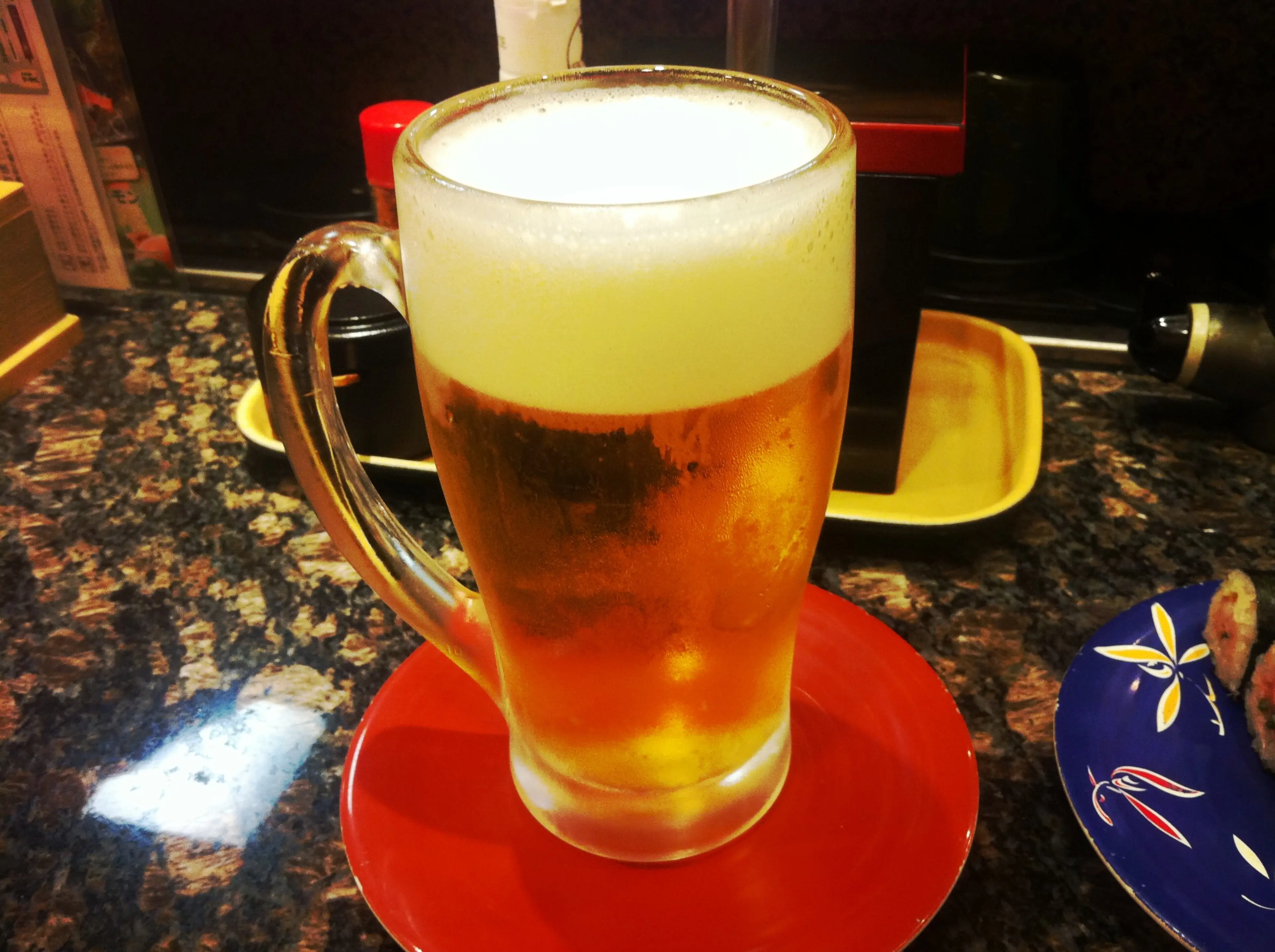
Appi Kogen Beer
A locally brewed beer from the Appi Kogen region of Iwate, known for its unique flavors and high-quality ingredients.
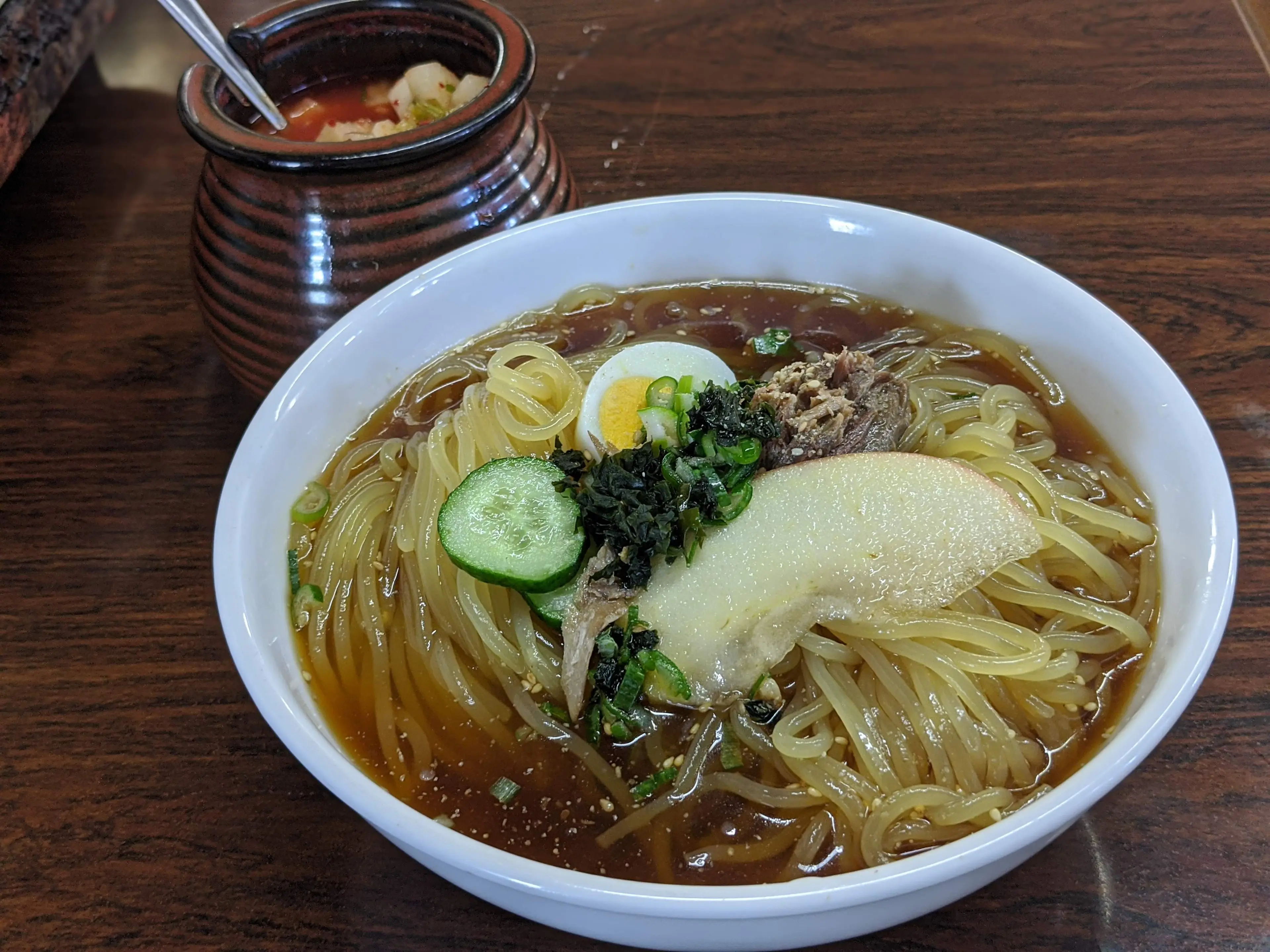
Morioka Cold Noodles
A variation of Morioka Reimen, these cold noodles are served with a soy-based sauce and various toppings.
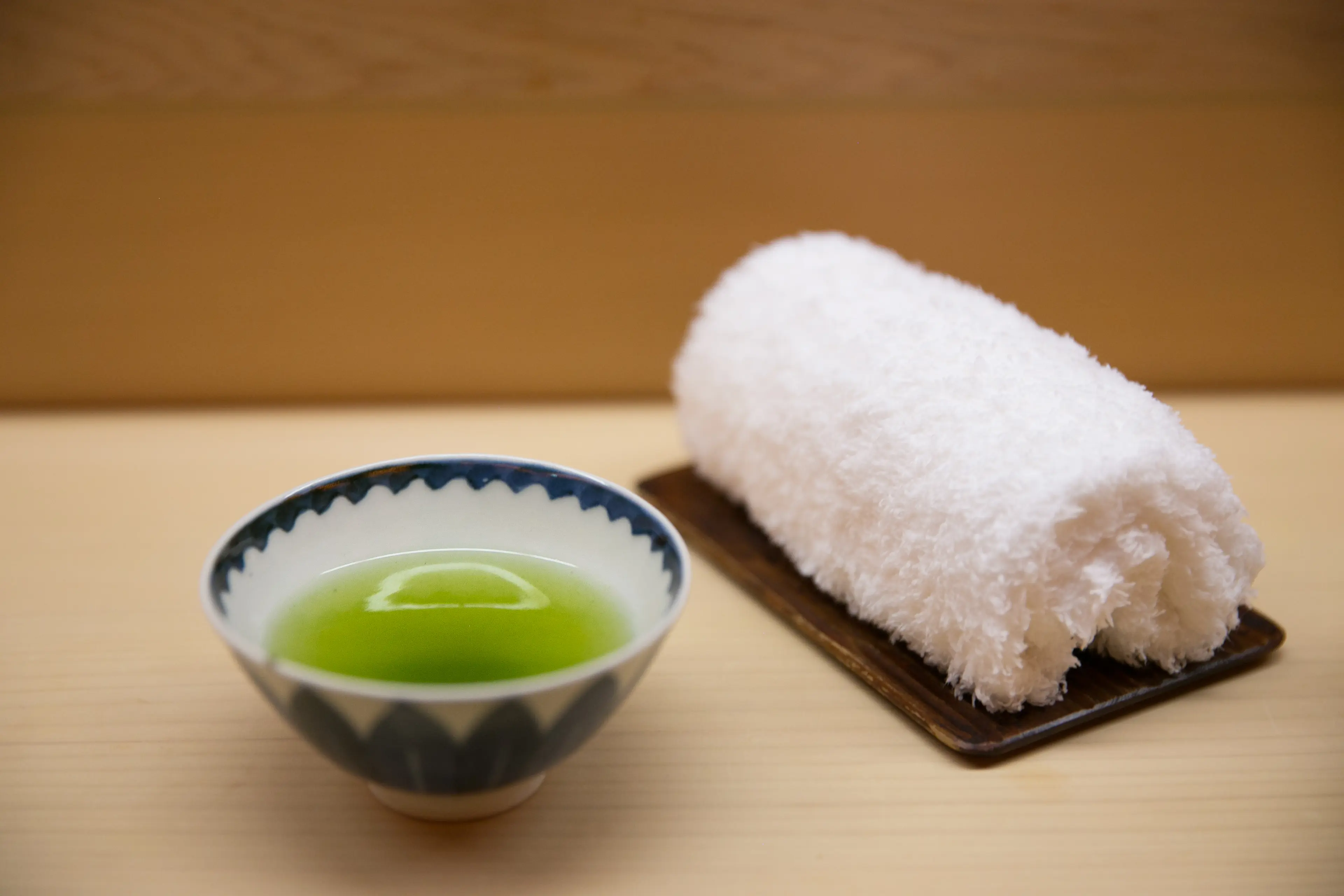
Iwate Green Tea
A locally grown green tea from Iwate prefecture, known for its rich flavor and health benefits.
Best time to visit
The best time to visit Morioka, Japan is during the spring months of April and May or the autumn months of October and November. During these periods, the weather is typically mild and pleasant, making it ideal for sightseeing and outdoor activities. Spring offers the breathtaking view of cherry blossoms, while autumn presents the stunning colors of fall foliage. Additionally, these periods avoid the hot, humid summers and the cold winters that Morioka experiences.
How to get around
Train
Morioka is a major stop on the Tohoku Shinkansen line, making it easily accessible from Tokyo and other major cities. Within the city, the Morioka Station serves as a hub for local JR lines and private railway lines, connecting various parts of the city and nearby areas.
Bus
The city has a comprehensive bus network operated by Iwate Kenpoku Bus and Morioka Central Bus. These buses cover most areas of the city and are a convenient way to get around, especially to places not served by the train lines.
Taxi
Taxis are readily available in Morioka, especially around the train station and major hotels. They can be hailed on the street or booked in advance. Taxis are a convenient but more expensive option for getting around the city.
Ridesharing
While ridesharing services like Uber are not as prevalent in Morioka as in other major cities, there are local ridesharing apps available. These services can be a convenient option for getting around, especially if you're traveling in a group or have a lot of luggage.
Bicycle
Morioka is a relatively compact city, making it a great place to explore by bicycle. There are several places in the city where you can rent bicycles for the day.
Walk
Many of Morioka's main attractions are located within walking distance of each other in the city center. Walking is a great way to explore the city at your own pace and take in the sights.
Car Rental
Renting a car can be a good option if you plan to explore outside of Morioka or if you prefer the flexibility of driving yourself. There are several car rental companies located in the city, including at the Morioka Station.
Important information
Currency¥ JPY
Time zoneUTC+9
Driving sideLeft
Emergency phoneAmbulance: 119; Fire: 119; Police: 110
Drinking waterYes
Power sockets
Voltage100 V
Things to know about Morioka, Japan as a first time visitor
1
Morioka is the capital city of Iwate Prefecture, located in the northern Tohoku region of Japan.
2
The city is known for its pleasant climate, with average temperatures ranging from 24.8°F (-4°C) in winter to 79.7°F (26.5°C) in summer.
3
Japanese is the official language in Morioka. While some locals may speak English, it's a good idea to learn a few basic Japanese phrases.
4
The currency used in Morioka is the Japanese Yen (JPY). Credit cards are widely accepted, but it's always handy to have some cash for smaller establishments or street vendors.
5
Morioka is in the Japan Standard Time zone (JST), which is 9 hours ahead of Coordinated Universal Time (UTC+9).
6
The city is known for its cleanliness and safety, but as with any travel destination, it's important to stay vigilant and take basic safety precautions.
7
Public transportation in Morioka is efficient and reliable. The city has a comprehensive bus and train network, and taxis are also readily available.
8
Morioka is famous for its local cuisine, including 'Wanko Soba', 'Reimen' (cold noodles), and 'Jaja-men' (noodles with miso-based sauce).
9
Tipping is not customary in Japan. In fact, it can sometimes be seen as rude, so it's best to avoid it.
10
The city has a mix of traditional and modern architecture. It's respectful to ask before taking photos of people or private property.
11
Morioka has a humid continental climate, so it's best to pack accordingly. Summers can be hot and humid, while winters can be very cold with heavy snowfall.
12
The city is not as crowded as Tokyo or Osaka, but it can get busy during peak travel seasons like Golden Week (late April to early May), Obon (mid-August), and New Year's holidays.
13
It's important to respect local customs and traditions. For example, it's customary to bow when greeting someone, and shoes should be removed when entering someone's home or certain traditional establishments.
14
Smoking is prohibited in most public places in Morioka, including restaurants, cafes, and public transportation.
15
The city has a number of convenience stores (konbini) that are open 24/7. They offer a wide range of products, from food and drinks to toiletries and stationery.
16
The tap water in Morioka is safe to drink, but bottled water is also widely available.
17
Public Wi-Fi is available in many parts of the city, including train stations, cafes, and some public areas.
18
Most Japanese people in Morioka are polite and reserved. Loud and boisterous behavior is generally frowned upon.
19
Recycling is taken seriously in Japan. Be sure to separate your trash according to the local guidelines.
20
Emergency numbers in Japan are 110 for police and 119 for fire and ambulance services. It's a good idea to have these numbers saved in your phone.
Basic Japanese to know as a first time visitor
English phrase | Native phrase | Pronunciation | When to use it |
|---|---|---|---|
Hello | こんにちは | Konnichiwa | Greeting someone |
Goodbye | さようなら | Sayonara | Leaving or parting ways |
Thank you | ありがとう | Arigatou | Showing gratitude |
Excuse me | すみません | Sumimasen | Getting attention or apologizing |
Yes | はい | Hai | Agreeing or confirming |
No | いいえ | Iie | Disagreeing or denying |
I don't understand | わかりません | Wakarimasen | When you don't understand what was said |
Do you speak English? | 英語を話せますか? | Eigo o hanasemasu ka? | When you need to communicate in English |
I'm sorry | ごめんなさい | Gomen nasai | Apologizing |
Where is the bathroom? | トイレはどこですか? | Toire wa doko desu ka? | When you need to find a bathroom |
How much is this? | これはいくらですか? | Kore wa ikura desu ka? | When you want to know the price of something |
Help! | 助けて! | Tasukete! | In an emergency |
I'm lost | 迷子です | Maigo desu | When you can't find your way |
Can I have the menu, please? | メニューをください | Menyū o kudasai | When you want to order food |
Water, please | 水をください | Mizu o kudasai | When you want to order water |
Check, please | 勘定をお願いします | Kanjō o onegaishimasu | When you want to ask for the bill |
Good morning | おはようございます | Ohayou gozaimasu | Greeting someone in the morning |
Good night | おやすみなさい | Oyasuminasai | Saying goodnight or going to bed |
I would like to go to Morioka station | 盛岡駅に行きたいです | Morioka eki ni ikitai desu | When you want to go to Morioka station |
Is this the right way to Morioka castle? | これは盛岡城への正しい道ですか? | Kore wa Morioka-jo e no tadashii michi desu ka? | When you are asking for directions to Morioka castle |
Packing List
Clothing
Underwear (5 pairs)
Socks (5 pairs)
T-shirts (5)
Pants/Jeans (2 pairs)
Comfortable walking shoes
Sweater or jacket
Pajamas
Swimsuit
Rain jacket or umbrella
Toiletries
Toothbrush and toothpaste
Shampoo and conditioner
Body wash or soap
Deodorant
Razor and shaving cream
Makeup and makeup remover
Sunscreen
Hand sanitizer
Prescription medications
First aid kit
Travel documents and essentials
Passport
Driver's license or ID card
Credit and debit cards
Cash and coins
Travel insurance documents
Hotel and transportation reservation confirmations
Guidebook or map
Phrasebook or translation app
Electronics and gadgets
Smartphone and charger
Headphones
Camera and charger
Universal power adapter
Portable power bank
Laptop and charger (if necessary)
Miscellaneous items
Snacks
Water bottle
Travel pillow and blanket
Books or e-reader for entertainment
Travel-sized laundry detergent
Ziplock bags for organization
Tissues
Reusable shopping bag
Weather Conditions
When visiting Morioka, Japan, it's important to consider the city's seasonal weather patterns to ensure you pack appropriately and plan your activities accordingly. In the winter, from December to February, Morioka experiences cold temperatures that can drop to 17°F (-8°C) and rarely rise above 39°F (4°C). Snowfall is common during these months, making it a great time for winter sports enthusiasts to visit. Remember to pack warm clothing, including a heavy coat, gloves, and a hat. Spring, from March to May, sees a gradual increase in temperature, with highs reaching around 68°F (20°C) by May. Cherry blossom season typically occurs in April, making it a beautiful time to visit. Lighter clothing with a few warmer layers for the cooler evenings would be suitable. Summer, from June to August, can get quite hot, with temperatures peaking around 86°F (30°C). However, this season also sees the most rainfall, particularly in June and July, so don't forget to pack a raincoat or umbrella. Autumn, from September to November, offers mild and comfortable weather. Temperatures can range from 50°F (10°C) to 72°F (22°C). This is a great time to explore the city's parks and outdoor attractions. Pack a mix of light clothing and warmer layers. Regardless of when you visit, it's always a good idea to check the forecast before your trip to ensure you're prepared for any unexpected weather changes. Enjoy your trip to Morioka!
| Month | Hi / Lo (°C) | Weather Overview |
|---|---|---|
January | 4° / -5° | January is the coldest month in Morioka, with temperatures often dropping below freezing. Be sure to pack warm clothing if you plan to visit during this time. |
February | 5° / -4° | February is still quite cold, with temperatures slightly higher than January. Snowfall is common, making it a great time for winter sports. |
March | 9° / -1° | March sees the beginning of spring, with temperatures starting to rise. However, it can still be chilly, especially in the early part of the month. |
April | 17° / 3° | April is a pleasant month to visit Morioka, with temperatures comfortable for outdoor activities. Cherry blossoms start to bloom, adding to the city's beauty. |
May | 22° / 8° | May brings warm weather, making it an ideal time to explore the city's parks and gardens. Rainfall is moderate, so carry an umbrella. |
June | 25° / 13° | June marks the start of summer, with temperatures rising significantly. It's a good time to visit if you enjoy warm weather, but be prepared for occasional rain showers. |
July | 29° / 17° | July is the hottest month in Morioka, with temperatures often exceeding 25 degrees. It's a great time to visit the city's beaches and enjoy water sports. |
August | 29° / 17° | August continues the summer heat, with high humidity levels. It's a good time to visit if you enjoy hot weather, but be prepared for occasional thunderstorms. |
September | 24° / 13° | September marks the start of autumn, with temperatures starting to drop. The city's parks and gardens start to change color, offering beautiful scenery. |
October | 19° / 7° | October is a pleasant month to visit Morioka, with mild temperatures and less rainfall. The autumn foliage is at its peak, making it a great time for nature walks. |
November | 12° / 2° | November is a cool month, with temperatures dropping significantly. The autumn colors are still visible, making it a good time for sightseeing. |
December | 6° / -2° | December marks the start of winter, with temperatures often dropping below freezing. Snowfall is common, making it a beautiful time to visit, but pack warm clothing. |
Did you know?
Places near by Morioka, Japan

Akita
A city known for its great sake and beautiful natural scenery, including Lake Tazawa and the mountains of Dewa Sanzan.

Hiraizumi
A town that was once the political center of Japan during the Heian Period. It's home to several World Heritage Sites, including Chusonji Temple and Motsuji Temple.

Hirosaki
A city famous for its beautiful cherry blossoms and Hirosaki Castle, a historic castle dating back to the Edo period.

Sendai
The largest city in the Tohoku region, known for its vibrant nightlife, modern shopping, and historic sites like Sendai Castle.

Towada
Home to the stunning Towada-Hachimantai National Park and the beautiful Lake Towada.

Aomori
A city known for its apple orchards and the Nebuta Matsuri, a vibrant summer festival featuring large lantern floats.

Yamagata
Famous for its hot springs, mountain temples, and the Yamagata Castle ruins.

Fukushima
Known for its beautiful landscapes, including Lake Inawashiro and Bandai-Asahi National Park.

